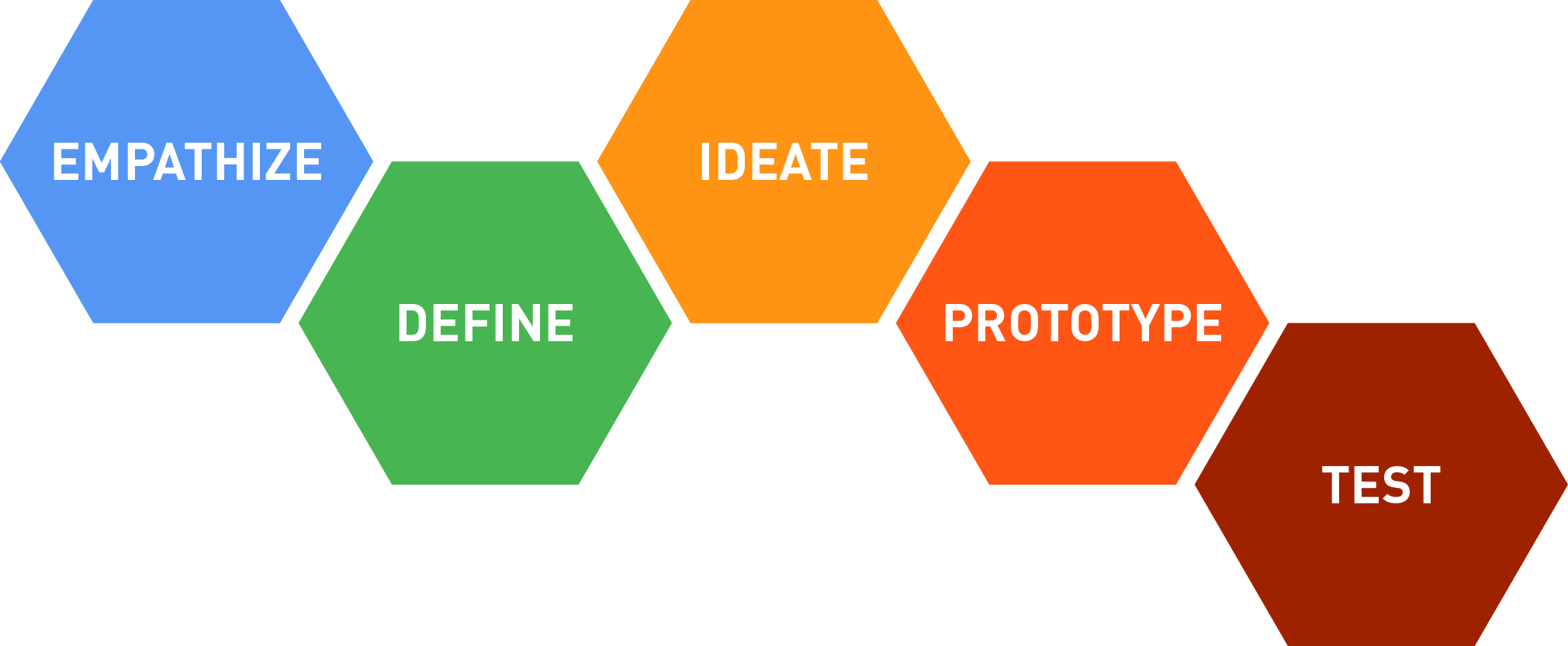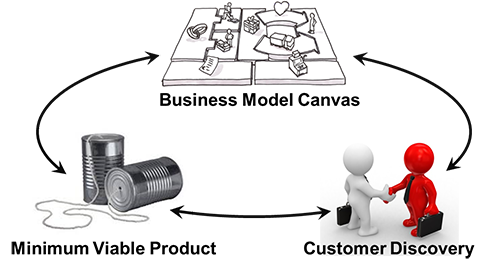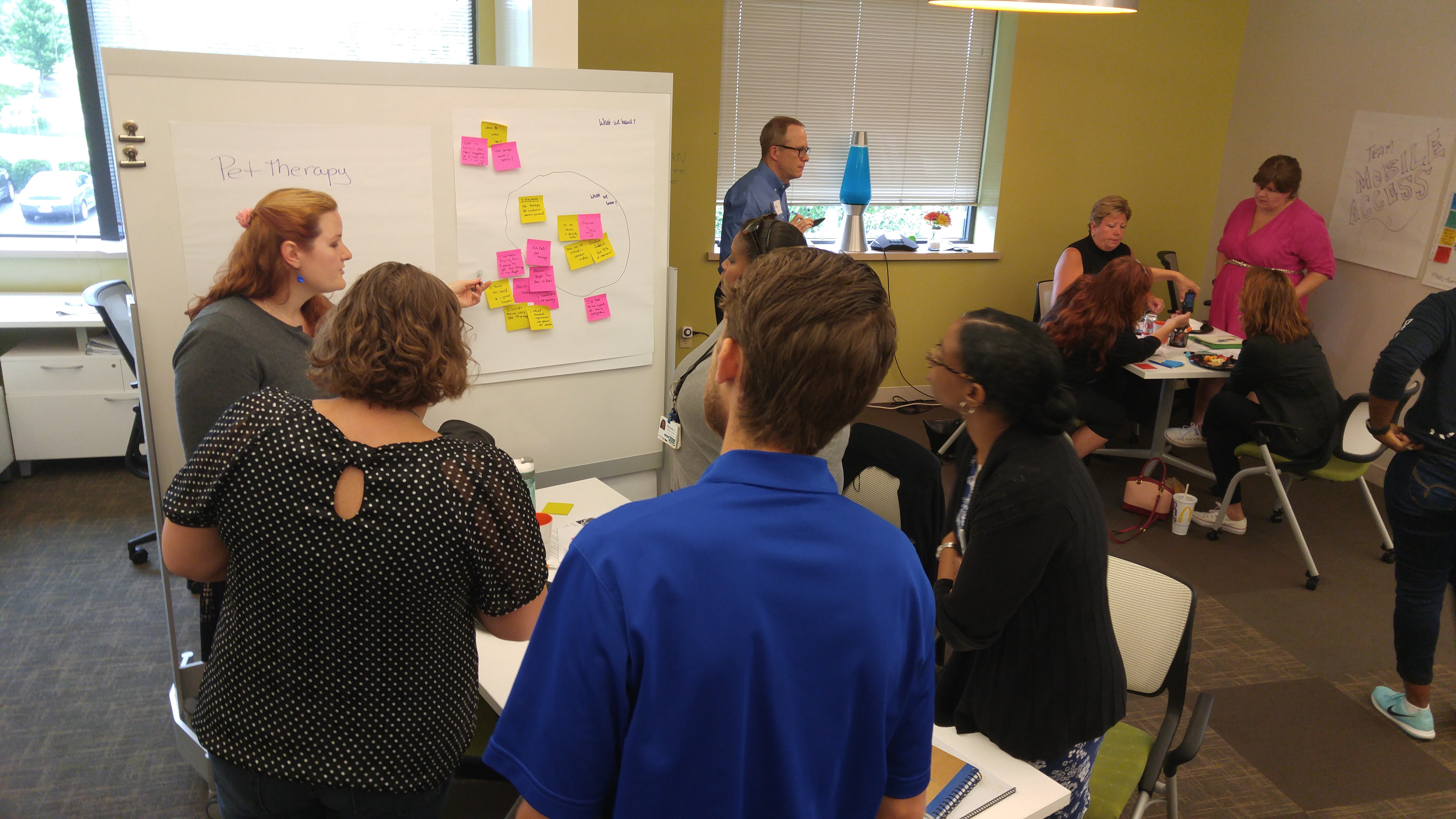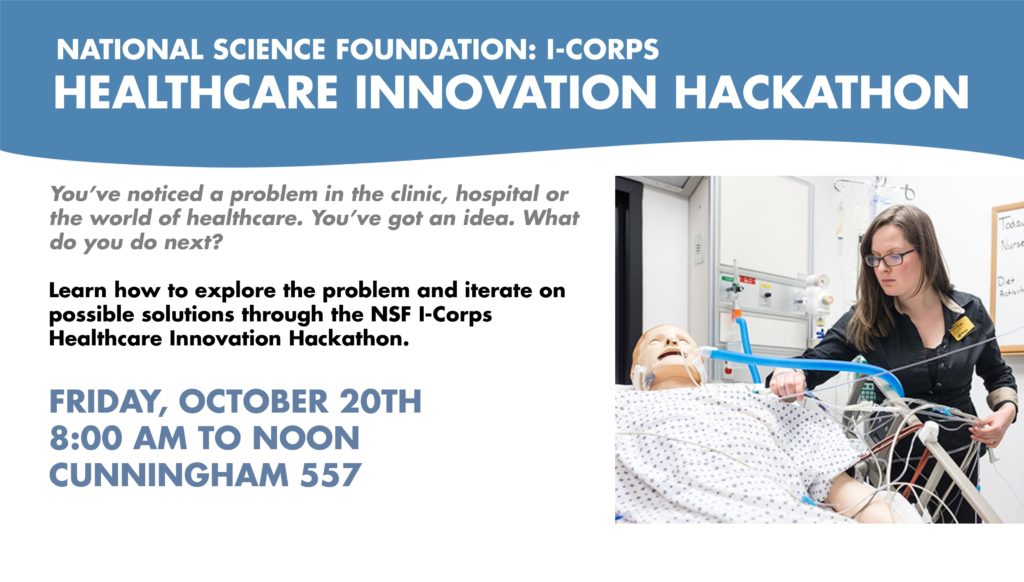The I-Corps for Health pilot program leverages the National Science Foundation’s (NSF) investment in the Milwaukee I-Corps Site and expands the program into the healthcare space, drawing on largely untapped sources of innovation. The Wisconsin Economic Development Corporation (WEDC) provided $93,000 in support for the new entrepreneurial support program connecting teams from Froedtert and other clinical sites in Milwaukee. Inception Health has also partnered with UWM and the Lubar Entrepreneurship Center to tap into a bigger pool of innovators. Their Innovation Pitch Tournament will occur in the Spring of 2017. Learn more about Inception Health Workshops here.

Froedtert & the Medical College of Wisconsin, Capri Communities, Inception Health, and the Lubar Center for Entrepreneurship at the University of Wisconsin-Milwaukee (UWM) have partnered to facilitate a series of workshops on Design Thinking and Lean Startup around the Inception Health Innovation Tournament. The objective of these workshops is to instill creative and entrepreneurial mindsets in Innovation Tournament participants while engaging with the broader Froedtert Health community. The tournament will help build-up enthusiasm for bringing innovative ideas to life, and the proposed workshops will offer experiential learning opportunity to participants that will expose them to a new mindset and skills. Workshop participants will also examine various approaches for gaining insights through empathy with the residents and families of Capri Communities in order to uncover the problems that they face. Instructors and participants will work together to develop a plan by which Design Thinking could be applied to enhancing the lives of residents and families of Capri Communities.
Design Thinking is a methodology for innovation that combines creative analytical approaches and requires collaboration across disciplines. It draws on methods from engineering and design, and combines them with ideas from the arts, tools from the social sciences, and insights from the business practice. This workshop will help Innovation Tournament participants create solutions that are patient-focused through new ways of being intentional and collaborative.
Design Thinking is a Mindset. Design Thinking is about believing we can make a difference, and having an intentional process in order to get to new, relevant solutions that create positive impact. Design Thinking gives you faith in your creative abilities and a process for transforming difficult challenges into opportunities for design.
The key characteristics of the Design Thinking framework are:
- Human-Centered – the process begins from deep empathy and understanding of needs and motivations of people (patients, providers, administrators, insurers, regulators, etc.)
- Collaborative – several great minds bringing multiple perspectives are always stronger when solving a challenge than just one
- Optimistic – Design Thinking is the fundamental belief that we all can create change regardless of how big a problem, how little time or how small a budget
- Experimental – Design Thinking gives you permission to fail and to learn from your mistakes, because you come up with new ideas, get feedback and iterate


Innovation Tournament participants will be exposed to the Lean Startup methodology and explore commercial viability of their ideas. The Lean Startup process consists of three elements: business model canvas, customer discovery and Minimum Viable Product (MVP). This is a hypothesis-based approach where participants are encouraged to articulate their assumptions, test them in a structured manner and quickly attempt solutions.
The key elements of Lean Startup Include:
- Business Model Canvas – the business model canvas is a shorthand way to frame the key elements of your business. Based on the canvas the teams can frame questions (or hypotheses) to test during the customer discovery process.
- Customer Discovery – this is the key process of Lean Startup framework that consists of iterative sequence of steps: defining a hypothesis, designing an experiment (customer interview), conducting an experiment (interviewing – asking questions, inferring insights, learning more about customer motivations and drivers); and validating or redesigning initial hypothesis.
- Minimum Viable Product – the minimum viable product refers to the minimum feature set that will get your customers to buy the product. Defining the MVP helps early stage businesses to build only the most important features in a product (and avoid wasting money building features that the market doesn’t really want or won’t pay for.
Workshop Elements. Workshop elements are designed using the frameworks of Design Thinking and Lean Startup. They include presentation of materials, examples and exercises done as a group or in teams.
Workshop Series Scope and Format. The workshop series will be custom designed and team-taught by UWM’s Lubar Entrepreneurship staff (B. Thompson and N. Green) and UWM faculty (Dr. I. Avdeev) trained at the Stanford University’s Hasso Plattner Institute of Design and experienced in Design Thinking curriculum creation and delivery.
Workshop #1: Gaining Empathy – understanding end-users (residents, patients, providers, family members, et al.) point of view through various methods (interviews, shadowing, a day in the life of, extreme users, etc.).
Workshop #2: Synthesis of a User-Centered Problem/Opportunity – understanding user motivations from empathy discovery and converting this information into a design statement (identifying the right problem to solve or need to address – an opportunity for a collaborative project). Analyzing and making sense of data in favor of articulating a unique and concise design problem that is grounded in user’s needs and insights.
Workshop #3: Ideation and Prototyping – creating opportunity areas by asking “How Might We” questions based on user-centered insights and then developing many solutions using brainstorming rules (defer judgment, go for quantity, be visual, encourage wild ideas, etc.). Prototyping – understanding many purposes of prototyping beyond final validation and experiencing multiple modalities (story boards, sketches, narrative, videos, low-res prototyping). The purpose of prototyping is not simply to create a mock-up or scale model of the solution concept; it is to create experiences to which users can react.
Workshop #4: Testing (unpacking) and Stakeholder Analysis – learning about the problem/opportunity from testing insights. Stakeholder Analysis – developing a picture of the “customer ecosystem” which may include users, influencers and economic decision makers, as well as consideration of customer segments.

INSTRUCTIONAL TEAM

Associate Professor
Mechanical Engineering
University of Wisconsin-Milwaukee

President and Director
UWM Research Foundation
Lubar Entrepreneurship Center


